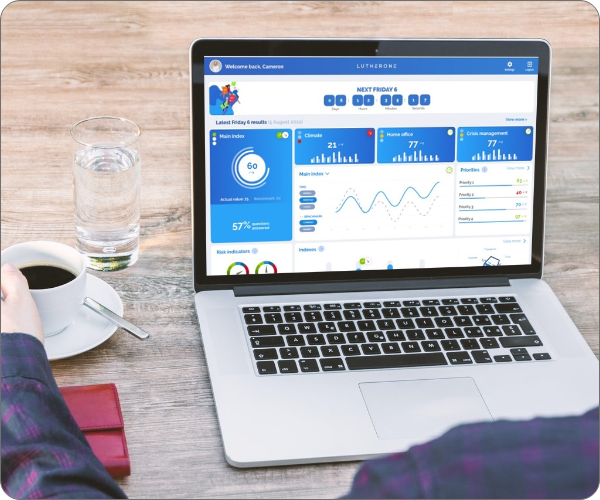REMOTE WORK
Cooperation, Collaboration & Covid: A Paradigm Shift

The year of a massive worldwide transition to working remotely is behind us. How did the change in work regime affect relations and cooperation?
A year after the transition to remote work, the effects on relationships and social ties are beginning to show. Many people feel lonely, isolated within their homes, unaware of what other colleagues are working on, lacking social contact. The vast majority of communication through online meetings is planned, focused on work topics, and not everyone is able to fully participate.
According to some studies, up to 90% of people want to return to the office for at least one day.
If we take a step back, we realize we are missing something we used to take for granted. We lack informal and unplanned interaction with colleagues. Whether it's chatting at the coffee machine, or joking and sharing ideas and thoughts in their early stages.
It turns out that downtime and pauses, which most people would label as unproductive and not being a part of work, don’t actually reduce performance at all. The fact that you joke with colleagues for a while, you laugh, you exchange a few informal words, on the contrary to reducing performance, is of great importance to performance. Not only does it help us regain strength and focus on other challenges that lie ahead, it also plays a key role in generating social networking and innovation.
Paradoxically, the remote work era is strictly performance-oriented. People are starting to get exhausted.
With remote work ongoing, our social networks and contacts are narrowing, gradually being limited to our closest colleagues. We thus lose support, the opportunity to share ideas and thoughts outside our team and consequently move them further. The space for brainstorming is dwindling, new ideas and a strong vision of where the company is headed are disappearing. People don’t develop their contacts further, they benefit from those already created, and even they gradually decline. This has a greater impact on people who have been in the company for a short time and have nothing to build on. They then adapt less, don’t feel like a part of the company, and are missing a whole range of things.
Despite people realizing that working from home offers a number of interesting benefits, due to the aforementioned aspects, only a few of them are likely to continue working completely from home - so the future is clearly moving towards a hybrid mode of working.
A challenge for companies and managers
In the context of a hybrid mode of work, it seems that in the future offices won’t be a place where people work side by side, but rather a place where they work together and where they can meet.
At the same time, for the long-term prosperity of companies and their further growth, it will be very important to focus on renewing and building new social ties, contacts and networks.

Managers should adapt to this, and while their role is to ensure performance and deliver, they should also proactively support and create opportunities, time and space for sharing and contacts. If they don’t, then people themselves, under the pressure of tasks and goals, will no longer have the time or energy to devote themselves to building bonds. The task of managers is therefore not only to support such informal meetings, but also to appreciate and possibly prepare and facilitate them to ensure they take place in a pleasant and relaxed atmosphere. They should realize that if they manage to create a safe, kind and also relaxed environment, it is fertile ground for creativity, ideas and the emergence of innovation as a result of joint discussion and invention.
Rose-colored glasses
From this point of view, it seems that a partial return to the office will be a renaissance of fun and the desire to work.
However, it’s necessary to realize that after such a long time people have settled in new roles and habits and the return for them will therefore not only be the return, but another change. And changes always bring a certain discomfort with them, at least in the beginning, although they are useful in the long run.
Additionally, many people may return to the office with unreasonable expectations and misconceptions. For example, finally meeting with colleagues I get along with can also mean meeting those I don't get along with so well.
In the first phase, people will have to get used to commuting again, and to the fact that due to this, they suddenly have much less time, especially for the family.
Some may also struggle with either fear of contagion or actually getting sick themselves. More contacts mean more opportunities for disease transmission, not just COVID-19. In many countries, people protecting themselves from the pandemic had the side effect of completely eliminating other respiratory diseases. In some countries, social distancing, contact restrictions and the use of respirators have contributed to their being virtually no cases of influenza. However, as we return to our offices, we may encounter some common illnesses.
These are all completely natural and normal things that we’ve been able to get used to not having in over a year of working from home, and which can put us under pressure, at least in the first weeks of our return.
So it’s important to know about these risks in advance and not be unnecessarily frustrated by them. The task of managers is then to help us handle this period and find a new way to mutually function.

